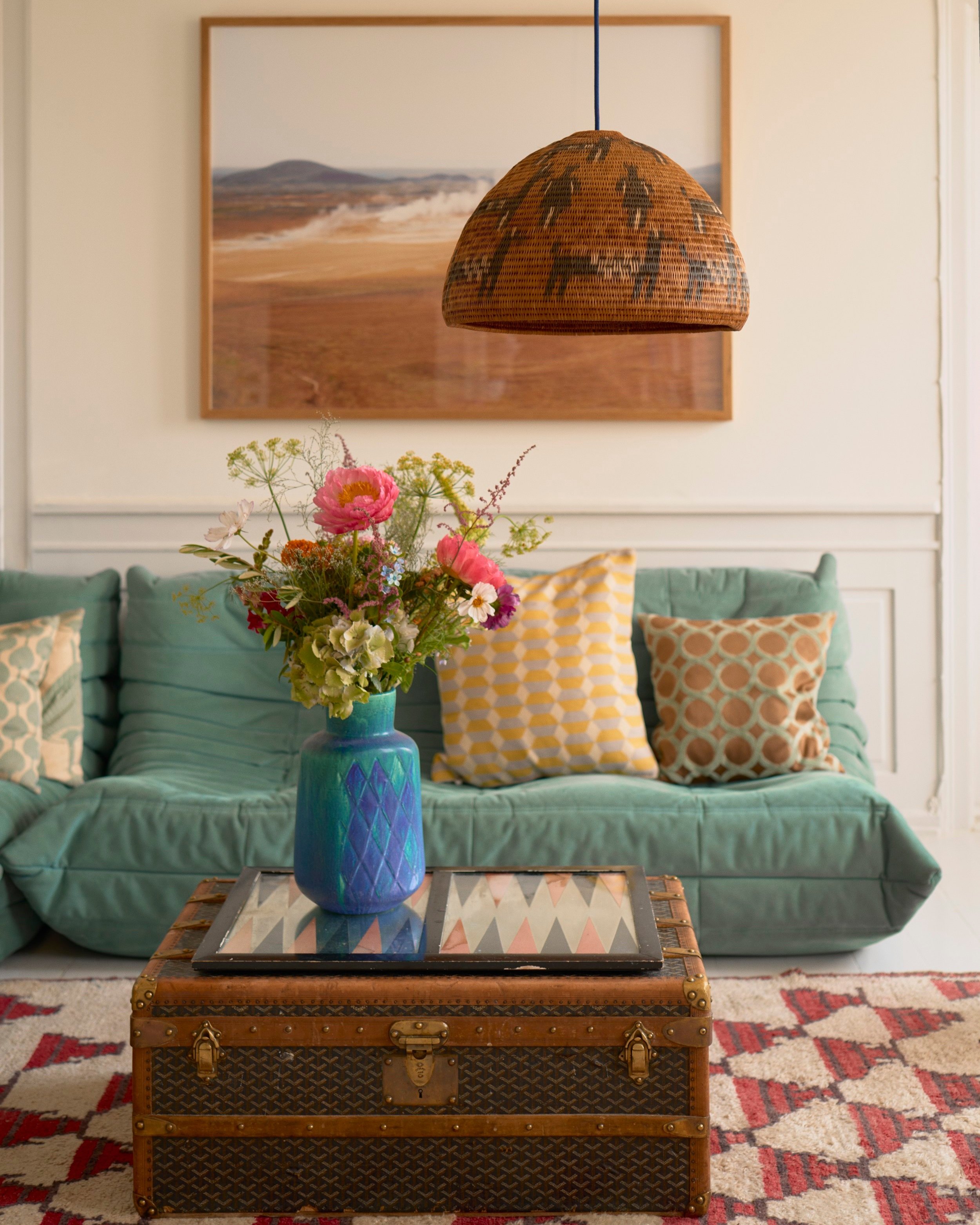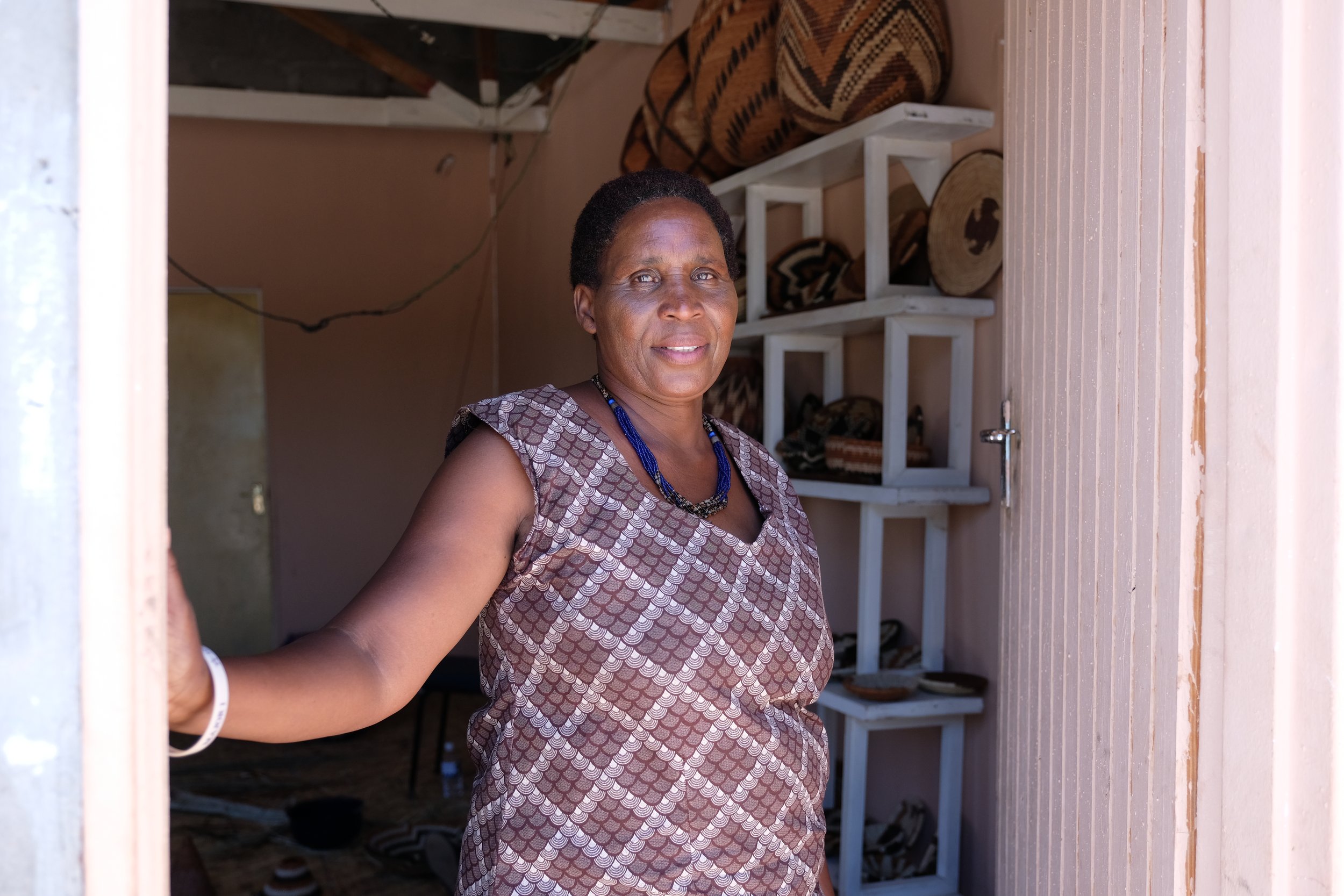A conscious return to interiors
Spring signals a conscious return to interiors; celebrating the Art of Slow with timeless shapes and natural tones, handcrafted baskets and lampshades will add warmth and soul to your interiors.
Don’t just take our word for it, more people are turning to decorating rather than restoration projects and last year the iconic dining room at Sketch London had a makeover adding texture, warmth and soul with handwoven wall lamps.
EMPOWERING WOMEN
Our baskets and lampshades are made in Botswana woven by the women from Etsha in north-western Botswana, who specialise in freeform woven vessels. Etsha is in the Okavango Delta, a spectacular area with some of the greatest biodiversity in the world.
The women of Etsha are descendants the Hambukushu refugees from southern Angola, who were fleeing attacks from the Portugese during Angola‘s war of independence in the 1960’s. They fled to Botswana and brought their basket weaving skills where they were settled as refugees and later granted citizenship.
Etsha Village, Okavango Delta Botswana.
Our collection celebrates the techniques and the beauty of weaving; they are co-created in a variety of shapes and patterns with the NBWT women in Etsha. Established in 1998 Ngamiland Basket Weavers Trust (NBWT) specialise in baskets representing generations of indigenous knowledge, skills and technique.
SUSTAINABLY HARVESTED
A basket is not only about the weaving, it’s also about the materials which are gathered many months before a basket is woven. The entire basket is made with locally harvested grasses and palm leaves from a tree called Mokola in Setswana, which typically takes a day trekking through deep sand, lagoons full of reeds and lurking crocodiles.
The leaves are dried and then boiled for several hours with a variety of tree roots to create the desired colour. The Hambukushu women picked up dying techniques to incorporate to their weaving skills from Botswana culture. Afterwards the prepared leaves are pulled into strips just the right size for weaving.
Each strip is soaked in water to make them pliable then the materials are assembled using a coil method, the only tool used to pierce the coil is an awl - a sharpened piece of wire with a handle made of wood. Etsha weavers are renowned for their skills both locally and internationally and examples of their works are on display at museums around the world.
Katenya Pithatho, Manager of NBWT
Basket and awl, Etsha
Katenya preparing to weave, Etsha
NBWT is a social enterprise whose mission is to empower women out of poverty whilst at the same time preserving Batswana’s rich culture and heritage in weaving and basket making. Today, although the numbers of weavers have diminished the trust has its office in the small village of Etsha 6, managed by Katneya Pithatho, supporting the community of weavers.
A LIVING ART
The female artisans, many of whom are agriculturalists by day, are the custodians of traditional techniques going back generations. Each basket is woven, using techniques handed down the maternal line from grandmother to mother, in a process that can only be described as a labour of love, each open basket takes on average one month to complete whilst a closed basket can take three months.
Each weaver, or group of weavers, has their own preferred patterns the free form pieces we have co-created show a variety of techniques colours and patterns and sizes to suit any interior.
MOKOLA COLLECTION
In 2021 we launched our fine jewellery Mokola Collection in collaboration with and support of Ngamiland Basket Weavers Trust, 20% of profits from each piece is donated to the Ngamiland Basket Weavers Trust, preserving Botswanas unique heritage.








